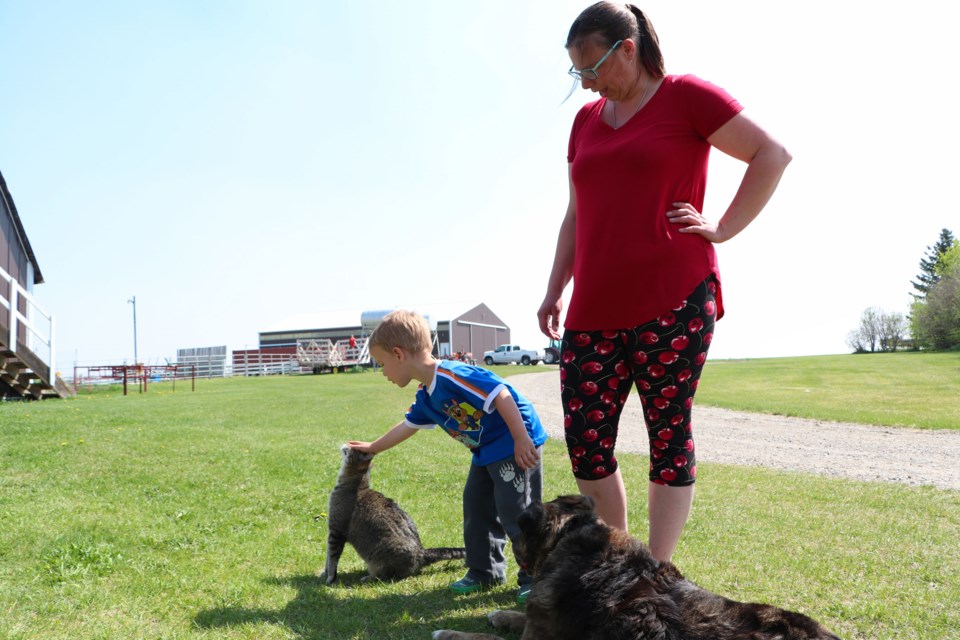By Janaia Hutzal
As much as cats are known to laze in the warmth of the sun, they also love to keep busy and have a purpose. For barn buddies, a productive day involves a good mouse chase.
About five years ago Jaime Wrightson adopted Cadence from the Cochrane and Area Humane Society (CAHS) because of her “street cred.” Wrightson needed a “mouser” and Cadence was used to being on her own in the outdoors.
As an animal lover it was also important to Wrightson that her new friend was cared for.
When Wrightson first brought Cadence to her new home, they did not see her much. If it weren’t for the food that would disappear, they may not have known Cadence was there.
“Now she loves attention and will talk your ear off with her stories,” says Wrightson about their once feral cat, who has now become part of the family.
Outdoor cats are often essential in rural dwellings as a natural way to get rid of mice. This is their life and where they are most comfortable. Because of their independence, they don’t ask for much; however, they do like their hard work to be noticed. Barn cat owners will occasionally receive a gift on their doorstep of a mouse or rodent they caught.
Owners can show their appreciation for their hardworking feline friends by doing their part in ensuring their outdoor pet is provided with adequate food and water, shelter and safety. It’s also imperative that responsible pet care is practised by ensuring outdoor cats are spayed or neutered, vaccinated, receive identification and any other veterinary care when needed. This is all given to our cats before adoption.
When cats come into the CAHS, we first determine their level of human interaction to help us find them the best suited home. Kittens and the majority of our cats are placed into permanent indoor homes, but there are some exceptions.
With consideration given to each cat’s history and level of socialization, a cat may be adopted out as an outdoor pet. These fall into two categories: companion and non-companion barn cats.
Companion barn cats are those who are not suitable to be a house pet, but would do well living in a heated or insulated barn or out-building.
Non-companion barn cats are those who have not had previous human interaction and are sometimes known as feral and are fearful of humans
Overtime, many outdoor cats come around as trust is built with their people, just as Cadence did.
Recently two non-companion barn cats, Jack and Ash, came into the shelter together and fortunately it did not take long before they were adopted together. After being slowly introduced to their new barn environment, with a soft blanket, food and water, they are finding comfort in their new home.
Shelter life is very unfamiliar for these special performers, so we strive to find them a home as soon as possible. If you are looking for an outdoor cat to add to your rural residence, please visit the shelter, we might just have the perfect barn buddy looking for you.




